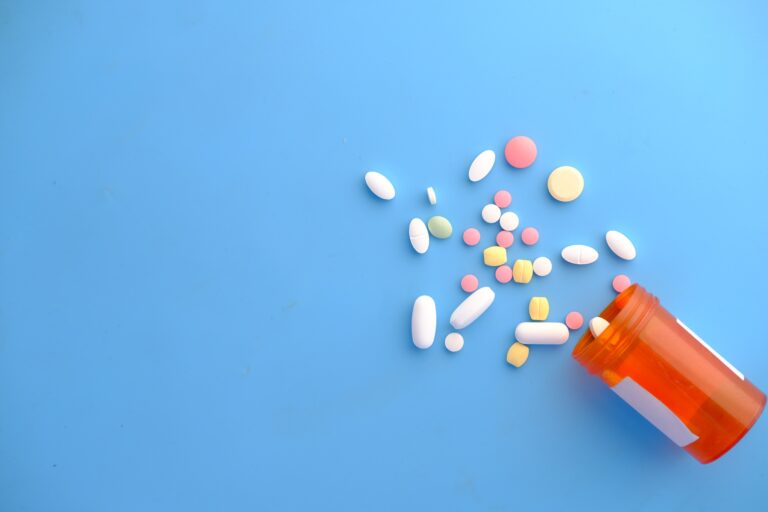The process of rewiring the brain from addiction is not a swift one, as it involves significant neurological alterations, and its timeline is influenced by a plethora of factors. These encompass the nature of the substance involved, the length of addiction, the individual’s overall health status, and the existence of concurrent disorders. At the onset, acute withdrawal can range from several days to a week, followed by a persistent post-acute withdrawal syndrome. This conversation invites us to further examine the intricate process of brain recovery from addiction and to underscore the exigency of patience and support throughout this journey.
Understanding Brain Plasticity
The human brain, often likened to a sophisticated supercomputer, has an amazing ability known as neuroplasticity. This intricate process allows the neural networks in the brain to adjust their activities in response to new situations or changes in the environment. Understanding the neuroplasticity mechanisms is essential in comprehending how the brain can rewire itself following addiction. Neuroplasticity is a fundamental process that underlies learning and memory. It involves several mechanisms such as neurogenesis, synaptogenesis, and synaptic pruning. These mechanisms are the basis of the brain’s ability to adapt, learn, and recover.
Cognitive flexibility, a key aspect of neuroplasticity, refers to the brain’s ability to switch between thinking about multiple concepts simultaneously, or to think about multiple aspects of a problem at once. The capacity for neuroplasticity varies between individuals and is influenced by various factors like genetic predisposition and environmental stimuli. However, it is important to note that while the human brain is remarkably malleable, it is not infinitely so. Understanding the limits and possibilities of neuroplasticity can help in designing effective strategies for recovery from addiction.
Addiction and Brain Changes
Substance abuse has profound effects on the brain, causing significant changes that can lead to addiction. These changes often involve a neurotransmitter imbalance, disrupting normal brain functions and altering a person’s mood, behavior, and overall mental state. As addiction progresses, the brain adapts to the presence of the substance, leading to tolerance and dependence. Neurotransmitters, the chemical messengers that transmit signals across neurons, play an essential role in regulating our mood, motivation, and reward.
Substance abuse results in an excessive release of dopamine, a neurotransmitter responsible for pleasure and reward, skewing the brain’s reward system. Consequently, the brain adjusts by producing less dopamine or reducing the number of receptors that can receive signals, leading to a neurotransmitter imbalance. Understanding these changes is fundamental for developing effective treatments. These changes are complex and multifaceted, involving both chemical alterations and behavioral adaptations. Exposure to triggers can reactivate memories of substance use and stimulate dopamine release, further reinforcing addictive behavior.
Timeline for Brain Recovery
Recovery of the brain from the effects of addiction is not an instantaneous process; it varies depending on several factors, including the substance abused, the duration of the addiction, the individual’s health, and the presence of any co-occurring mental health disorders. The initial phase of recovery, known as acute withdrawal, usually lasts for a few days to a week, leading to uncomfortable symptoms. Following this is a period known as post-acute withdrawal syndrome (PAWS), lasting from a few weeks to several months, during which the brain undergoes significant rewiring to restore its normal function.
Building emotional resilience during this period is essential as it acts as a buffer against withdrawal stress. Emotional resilience helps individuals cope with cravings, mood swings, and manage stress effectively. After PAWS, recovery may continue for months to years and is characterized by improvement in cognitive function, emotional stability, and overall health. Understanding this timeline helps in setting appropriate recovery milestones and building emotional resilience throughout the recovery process.

Final Thoughts
In conclusion, the duration required for brain rewiring from addiction is multifaceted, dependent on factors such as substance type, addiction duration, health status, and co-existing disorders. Initial withdrawal is brief, while post-acute withdrawal syndrome can extend for months. The ultimate recovery, involving significant cognitive and emotional improvements, can span years. This underlines the necessity for enduring patience and support throughout the intricately complex process of brain rewiring and recovery from addiction.
At Altitude Recovery, we’re here to elevate you from the challenges of substance use to a place of lasting resilience and renewal. Our dedicated team crafts personalized, evidence-based treatment plans, guiding you on a journey uniquely tailored to your needs and goals. To understand more about our comprehensive approach, explore our residential inpatient treatment services. Reach out for the compassionate support you deserve on your path to wellness by contacting us. Follow us on Facebook for more insights, resources, and stories of hope as we walk alongside you towards recovery.
Frequently Asked Questions
What Kind of Therapies Are Effective in Rewiring the Brain From Addiction?
Effective therapies for rewiring the brain from addiction include cognitive behavioral therapy (CBT) and neurofeedback training. CBT helps patients understand the thought patterns leading to substance abuse, providing strategies to avoid these triggers. Neurofeedback training, on the other hand, uses real-time displays of brain activity to teach self-regulation of brain functions. Both therapies aim at reconditioning the brain for healthier responses, aiding in the recovery process.
Are There Any Medications That Can Help Speed up the Brain Rewiring Process?
Yes, certain medications can aid in accelerating the process of rewiring the brain. These medication types primarily include antidepressants, anti-anxiety drugs, and certain mood stabilizers. They function by adjusting the brain’s neurochemical balance, thereby facilitating changes in brain circuitry. However, the effectiveness of these medications can vary greatly based on individual factors such as the specific addiction type, the patient’s overall health condition, and their personal response to medication.
How Does Age or the Duration of Addiction Impact the Brain Recovery Process?
Age and the duration of addiction can considerably influence the brain’s recovery process. Age factors can affect the brain’s plasticity, with younger brains typically having a higher capacity for change and recovery. Similarly, the length of substance use can lead to more entrenched neural pathways related to addiction, potentially extending the rewiring process. However, individual variances and the type of substance used also play a considerable role in recovery timelines.
Can Lifestyle Changes Like Diet and Exercise Aid in the Brain’s Recovery From Addiction?
Yes, lifestyle changes such as mindful eating and regular physical activity can considerably aid in the brain’s recovery from addiction. Nutrient-rich diet helps replenish depleted brain chemicals, while physical activities stimulate the release of endorphins, promoting feelings of well-being. These changes can reinforce new neural pathways, facilitating the rewiring process. However, the effectiveness varies between individuals and should be complemented with professional therapeutic interventions.
Is It Possible to Fully Recover From Severe Addiction, or Are Some Changes Permanent?
Recovery from severe addiction is indeed possible, albeit a complex and highly individualized process. Scientific research suggests that while some neurological changes may be permanent, many can be reversed over time. The recovery journey often involves thorough treatment, lifestyle modifications, and sustained mental health support. However, it is important to emphasize that the timeframe for such reversals varies greatly depending on the type and duration of addiction.




